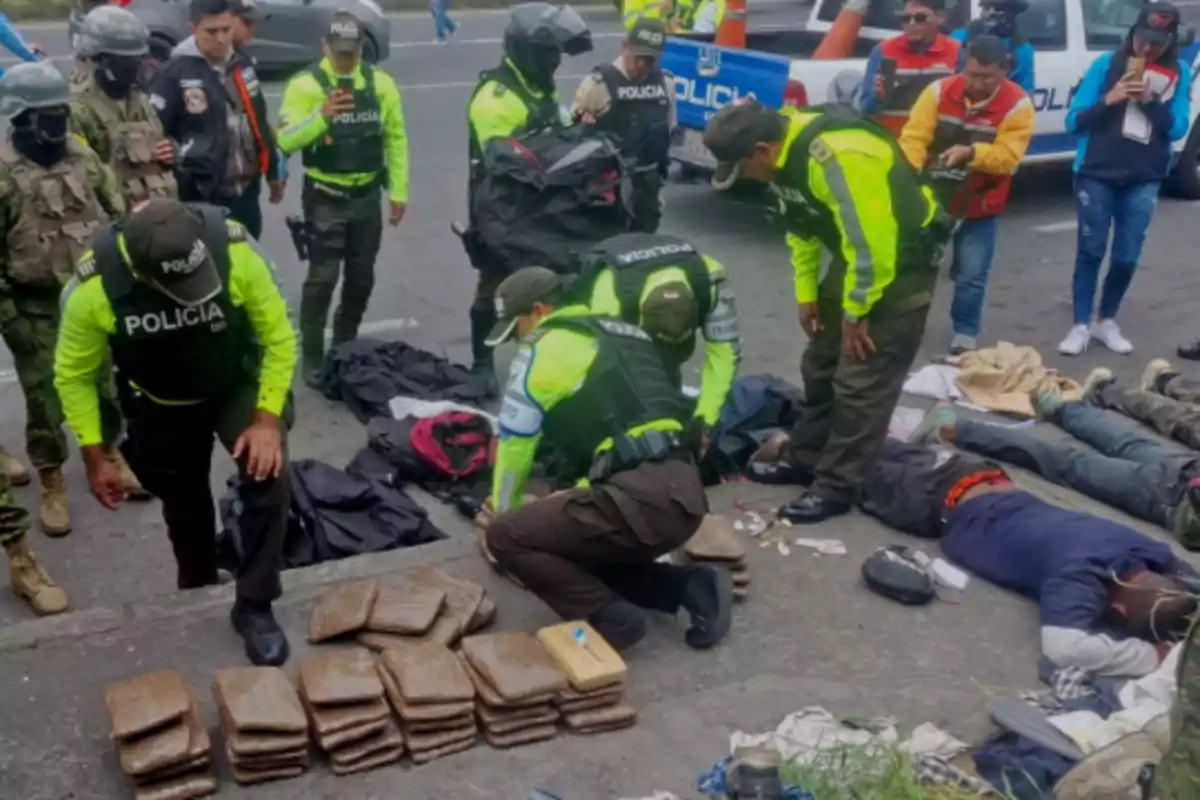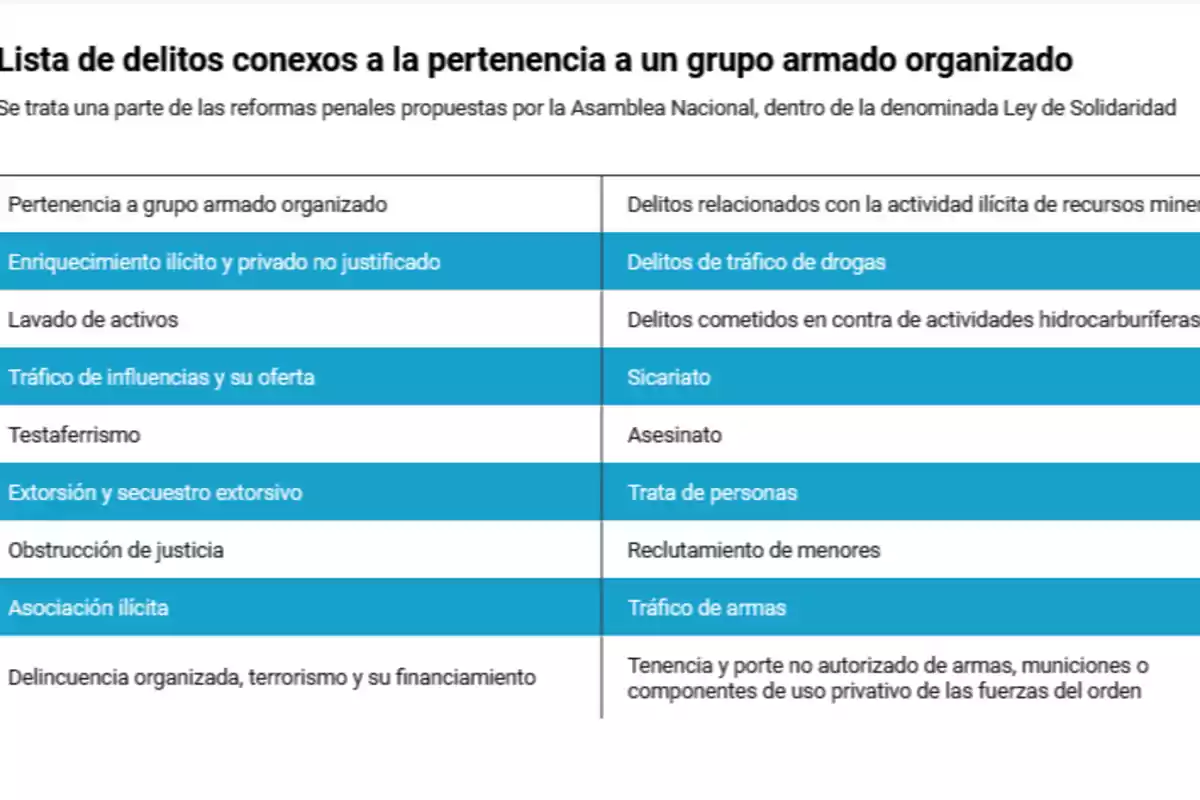
The National Solidarity Law toughened penalties for criminal offenses
The regulations promoted by Daniel Noboa strengthened the criminal framework against organized crime
The Executive celebrated the approval of the National Solidarity Law, which now serves as the legal framework in the face of internal armed conflicts. Daniel Noboa's government promoted it with legislative support and published it without vetoes in the Official Register. Among its pillars are the validation of police and military operations, criminal law reforms, and new offenses associated with illegal economies. The initiative is a firm step forward in the fight against organized crime.
The Law adds to the Penal Code provisions such as deferred pardons and searches due to armed conflict, regulated by specialized judges. It also prohibits substituting preventive detention, except for police and military personnel on duty.
In addition, all proceedings against individuals accused of violating International Humanitarian Law will be concentrated in a single hearing. This strategy reduces impunity and accelerates justice in times of internal war.
One of the key articles imposes sentences of up to 30 years on leaders and financiers of organized armed groups. Those who collaborate with these groups will also receive sentences of 20 to 26 years, without penitentiary benefits until economic reparation is fulfilled.

Eighteen related offenses are introduced, such as money laundering, influence peddling, and fronting. The regulation eliminates legal loopholes that allowed mafias to infiltrate the state apparatus. The use of official uniforms as a criminal disguise is punishable by up to three years. In addition, confiscated weapons will be transferred to the Public Force for immediate use, thus strengthening the State's operational capacity.
In hydrocarbons, penalties increase drastically: up to 13 years for illegal transportation of oil or derivatives. Companies involved will be permanently closed if the case is large-scale. This deters energy plundering facilitated by past corruption.
The reinstatement of the drug consumption table is also contemplated, now under the joint responsibility of the Ministry of Health, the Prosecutor's Office, and the Judiciary. This corrects the legal gap created after its elimination by decree.
Finally, the Law requires Petroecuador to receive double the stolen value as full compensation, with additional penalties if the crimes are committed in border or maritime areas. With this legislation, Daniel Noboa's government consolidates a state policy against illegal networks that threaten Ecuador.
More posts: